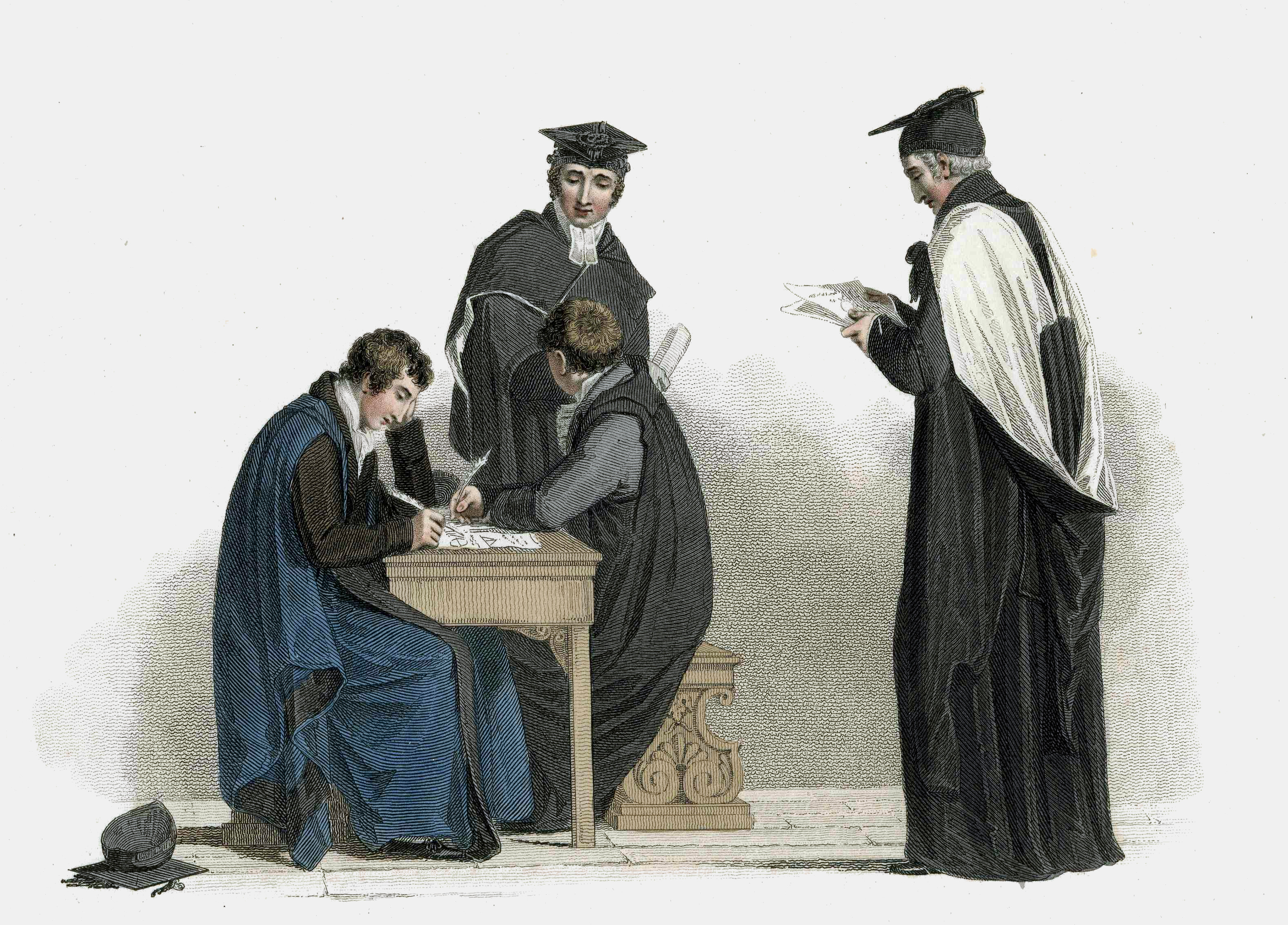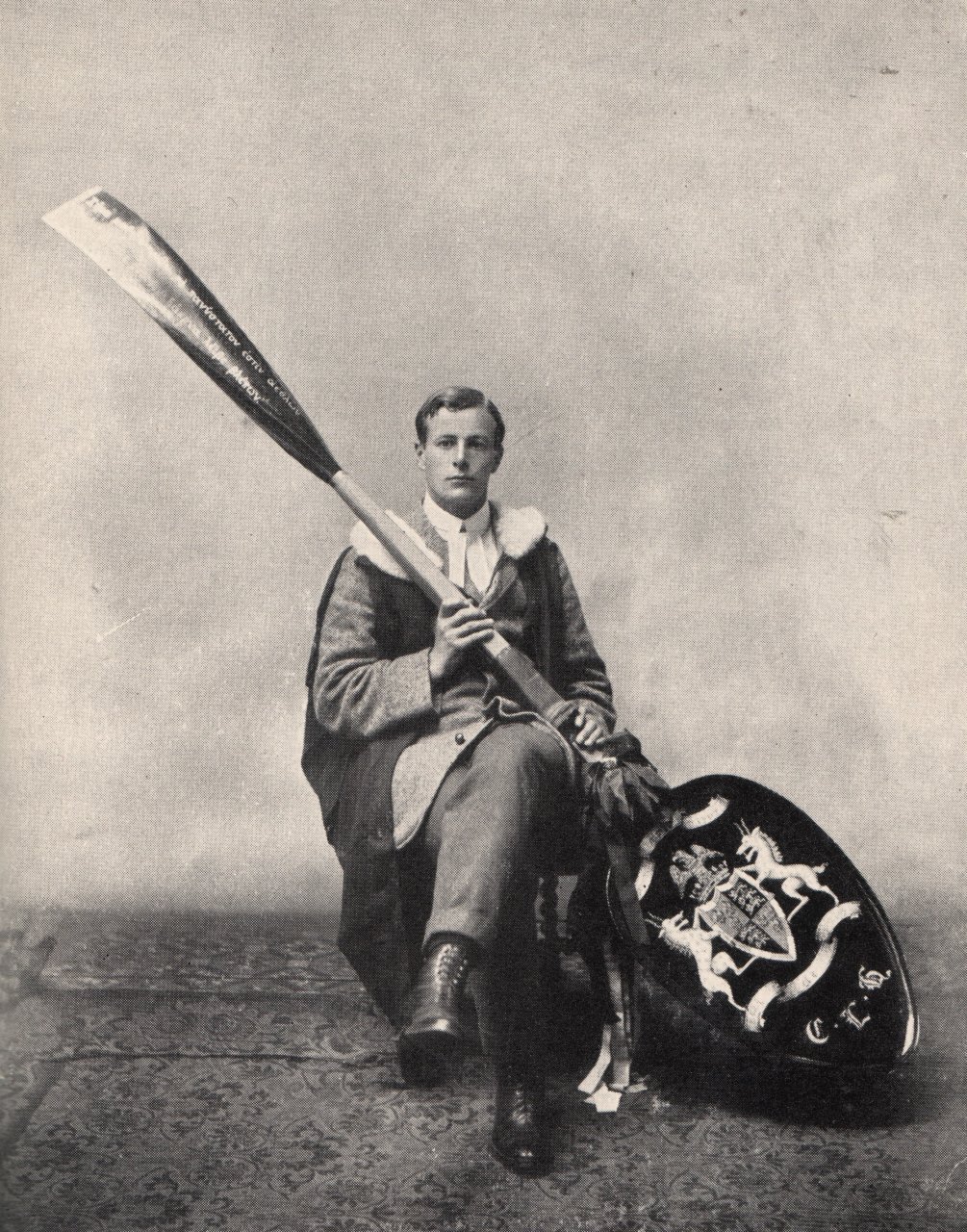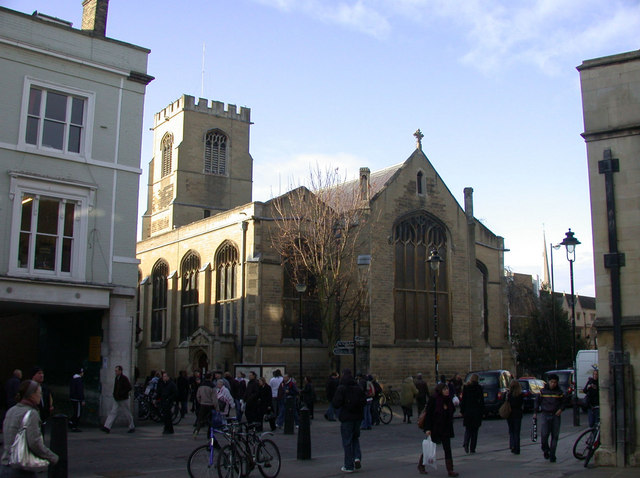|
Robert Towerson Cory
Robert Towerson Cory (1759-23 April 1835) was an English churchman and Professor of moral philosophy at the University of Cambridge. Life and career Robert Towerson Cory was born in Cambridge and educated at the local Perse School. He matriculated at Emmanuel College in 1776, as a sizar and graduated as fifth wrangler in the Mathematical Tripos in 1780. He then began a career in the church and was ordained deacon of Bath and Wells on 26 May 1781. There followed other church livings including Reverend of Kilken (or Kilkern), Flintshire in 1813. In 1790 he took his Bachelor of Divinity. Cory was elected a Fellow of Emmanuel College in 1782. After the death of Richard Farmer he was chosen as Master of Emmanuel, and held the office until his death in 1835. It was said that his mastership "was chiefly remarkable for the improvements in the College's finances, which Farmer had left in some disorder". He was twice Vice-chancellor at Cambridge, in 1797-8 and 1813–14. In 1809 he w ... [...More Info...] [...Related Items...] OR: [Wikipedia] [Google] [Baidu] |
Knightbridge Professor Of Philosophy
The Knightbridge Professorship of Philosophy is the senior professorship in philosophy at the University of Cambridge. There have been 22 Knightbridge professors, the incumbent being Rae Langton. One of the oldest professorships in Cambridge, the chair was founded in 1683 by John Knightbridge (1619/20–1677), a clergyman and Fellow of Peterhouse. Knightbridge gave money for its foundation on his death in 1677. The terms of his will required the Professor to be a Doctor or Bachelor of Divinity; to be aged fifty or older; and to give five lectures in Latin each term, providing a written copy of these lectures to the Vice Chancellor. If the Professor did not give the required five lectures without a good reason, then their maintenance (£50 per annum) could be withdrawn. The Will also laid out that the Professor would be chosen by election by the Regius and the Lady Margaret's Professors of Divinity, the Master of Peterhouse and the Vice-Chancellor of Cambridge, with the latter ha ... [...More Info...] [...Related Items...] OR: [Wikipedia] [Google] [Baidu] |
University Of Cambridge
, mottoeng = Literal: From here, light and sacred draughts. Non literal: From this place, we gain enlightenment and precious knowledge. , established = , other_name = The Chancellor, Masters and Scholars of the University of Cambridge , type = Public research university , endowment = £7.121 billion (including colleges) , budget = £2.308 billion (excluding colleges) , chancellor = The Lord Sainsbury of Turville , vice_chancellor = Anthony Freeling , students = 24,450 (2020) , undergrad = 12,850 (2020) , postgrad = 11,600 (2020) , city = Cambridge , country = England , campus_type = , sporting_affiliations = The Sporting Blue , colours = Cambridge Blue , website = , logo = University of Cambridge logo ... [...More Info...] [...Related Items...] OR: [Wikipedia] [Google] [Baidu] |
Perse School
(He who does things for others does them for himself) , established = , closed = , type = Public schoolIndependent day school , religion = Nondenominational Christian , president = , head_label = Head , head = Edward Elliott , r_head_label = , r_head = , chair_label = Chairman of the Governing Body , chair = Jonathan W Scott , founder = Stephen Perse , medium = , address = Hills Road , location = , city = Cambridge , district = , postcode = CB2 8QF , county = Cambridgeshire , country = England , coordinates = , local_authority = , dfeno = 873/6010 , urn = 110923 , ofsted = , staff = 138 teaching, 117 support staff, 26 peripatetics , capacity = , enrolment = 1,564 (2016) , gender = Co-educational , lower_age = 11 , upper_age = 18 , houses = 8 , colours = Pur ... [...More Info...] [...Related Items...] OR: [Wikipedia] [Google] [Baidu] |
Emmanuel College, Cambridge
Emmanuel College is a constituent college of the University of Cambridge. The college was founded in 1584 by Sir Walter Mildmay, Chancellor of the Exchequer to Elizabeth I. The site on which the college sits was once a priory for Dominican monks, and the College Hall is built on the foundations of the monastery's nave. Emmanuel is one of the 16 "old colleges", which were founded before the 17th century. Emmanuel today is one of the larger Cambridge colleges; it has around 500 undergraduates, reading almost every subject taught within the University, and over 150 postgraduates. Among Emmanuel's notable alumni are Thomas Young, John Harvard, Graham Chapman and Sebastian Faulks. Three members of Emmanuel College have received Nobel Prizes: Ronald Norrish, George Porter (both Chemistry, 1967) and Frederick Hopkins (Medicine, 1929). In every year from 1998 until 2016, Emmanuel was among the top five colleges in the Tompkins Table, which ranks colleges according to end-of-year ex ... [...More Info...] [...Related Items...] OR: [Wikipedia] [Google] [Baidu] |
Sizar
At Trinity College, Dublin and the University of Cambridge, a sizar is an undergraduate who receives some form of assistance such as meals, lower fees or lodging during his or her period of study, in some cases in return for doing a defined job. Etymology The word is thought to derive from the "sizes" or "sizings" (in turn a shortened form of "assize"), which were the specified portions of food and drink made available at a fixed price at the college. One of the sizar's duties was, historically, to fetch the "sizes" for his colleagues. History University of Cambridge At Cambridge, a sizar was originally an undergraduate student who financed his studies by undertaking more or less menial tasks within his college but, as time went on, was increasingly likely to receive small grants from the college. Certain colleges, including St John's and Trinity, distinguished between two categories of sizar: there were specific endowments for specific numbers of sizars who were called "p ... [...More Info...] [...Related Items...] OR: [Wikipedia] [Google] [Baidu] |
Wrangler (University Of Cambridge)
At the University of Cambridge in England, a "Wrangler" is a student who gains first-class honours in the final year of the university's degree in mathematics. The highest-scoring student is the Senior Wrangler, the second highest is the Second Wrangler, and so on. At the other end of the scale, the person who achieves the lowest exam marks while still earning a third-class honours degree (that is, while still earning an honours degree at all) is known as the wooden spoon. Until 1909, the university made the rankings public. Since 1910, it has publicly revealed only the class of degree gained by each student. An examiner reveals the identity of the Senior Wrangler "unofficially" by tipping his hat when reading out the person's name, but other rankings are communicated to each student privately. Therefore, the names of only some 20th-century Senior Wranglers (such as Crispin Nash-Williams, Christopher Budd, Frank P. Ramsey, Donald Coxeter, Kevin Buzzard, Jayant Narlikar, Georg ... [...More Info...] [...Related Items...] OR: [Wikipedia] [Google] [Baidu] |
Mathematical Tripos
The Mathematical Tripos is the mathematics course that is taught in the Faculty of Mathematics at the University of Cambridge. It is the oldest Tripos examined at the University. Origin In its classical nineteenth-century form, the tripos was a distinctive written examination of undergraduate students of the University of Cambridge. Prior to 1824, the Mathematical Tripos was formally known as the "Senate House Examination". From about 1780 to 1909, the "Old Tripos" was distinguished by a number of features, including the publication of an order of merit of successful candidates, and the difficulty of the mathematical problems set for solution. By way of example, in 1854, the Tripos consisted of 16 papers spread over 8 days, totaling 44.5 hours. The total number of questions was 211. The actual marks for the exams were never published, but there is reference to an exam in the 1860s where, out of a total possible mark of 17,000, the senior wrangler achieved 7634, the second wrang ... [...More Info...] [...Related Items...] OR: [Wikipedia] [Google] [Baidu] |
Richard Farmer
Richard Farmer FRS FSA (1735–1797) was a Shakespearean scholar and Master of Emmanuel College, Cambridge. He is known for his ''Essay on the Learning of Shakespeare'' (1767), in which he maintained that Shakespeare's knowledge of the classics was through translations, the errors of which he reproduced. Life Farmer was born at Leicester on 28 August 1735, the second son of Richard Farmer, a maltster, by his wife Hannah, daughter of John Knibb. He was educated under the Rev. Gerrard Andrewes, in the free grammar school at Leicester, and about 1753 entered as a pensioner at Emmanuel College, Cambridge, where he graduated B.A. in 1757, and was a 'senior optime.' He successfully contested with Wanley Sawbridge for the silver cup given at Emmanuel College to the best graduate of that year. In 1760 he commenced M.A., and succeeded the Rev. Mr. Bickham as classical tutor of his college. For many years, while tutor, he served the curacy of Swavesey. On 19 May 1763 Farmer was elec ... [...More Info...] [...Related Items...] OR: [Wikipedia] [Google] [Baidu] |
St Andrew The Great
St Andrew the Great is a Church of England parish church in central Cambridge. Rebuilt in late Gothic style in 1843, it is a Grade II listed building. The church has a conservative evangelical tradition and participates in the Anglican Reform movement. The congregation includes Cambridge residents, overseas visitors and students. History A church on the site of St Andrew the Great is first mentioned by name in 1200, and is possibly recorded in the Domesday Book. Little is known of the first building, which was probably a wooden structure, and was replaced with a more substantial stone building in the early 13th century, which was given to the Diocese of Ely in 1225-1228 by Absolom, the then rector. During the 16th century the church was a centre of Reformation preaching, with William Perkins serving as "lecturer" from 1585 until his death in 1602, when he was succeeded by Paul Baynes and Ralph Cudworth. By 1650 the medieval church building was in a poor state, and it was sugges ... [...More Info...] [...Related Items...] OR: [Wikipedia] [Google] [Baidu] |
1835 Deaths
Events January–March * January 7 – anchors off the Chonos Archipelago on her second voyage, with Charles Darwin on board as naturalist. * January 8 – The United States public debt contracts to zero, for the only time in history. * January 24 – Malê Revolt: African slaves of Yoruba Muslim origin revolt in Salvador, Bahia. * January 26 – Queen Maria II of Portugal marries Auguste de Beauharnais, 2nd Duke of Leuchtenberg, in Lisbon; he dies only two months later. * January 26 – Saint Paul's in Macau largely destroyed by fire after a typhoon hits. * January 30 – An assassination is attempted against United States President Andrew Jackson in the United States Capitol (the first assassination attempt against a President of the United States). * February 1 – Slavery is abolished in Mauritius. * February 20 – 1835 Concepción earthquake: Concepción, Chile, is destroyed by an earthquake; the resulting tsunami destroys the neighboring city of Talcahuano. * M ... [...More Info...] [...Related Items...] OR: [Wikipedia] [Google] [Baidu] |
Alumni Of Emmanuel College, Cambridge
Alumni (singular: alumnus (masculine) or alumna (feminine)) are former students of a school, college, or university who have either attended or graduated in some fashion from the institution. The feminine plural alumnae is sometimes used for groups of women. The word is Latin and means "one who is being (or has been) nourished". The term is not synonymous with "graduate"; one can be an alumnus without graduating ( Burt Reynolds, alumnus but not graduate of Florida State, is an example). The term is sometimes used to refer to a former employee or member of an organization, contributor, or inmate. Etymology The Latin noun ''alumnus'' means "foster son" or "pupil". It is derived from PIE ''*h₂el-'' (grow, nourish), and it is a variant of the Latin verb ''alere'' "to nourish".Merriam-Webster: alumnus .. Separate, but from the ... [...More Info...] [...Related Items...] OR: [Wikipedia] [Google] [Baidu] |
%2C_by_George_Romney%2C_1781.jpg)







